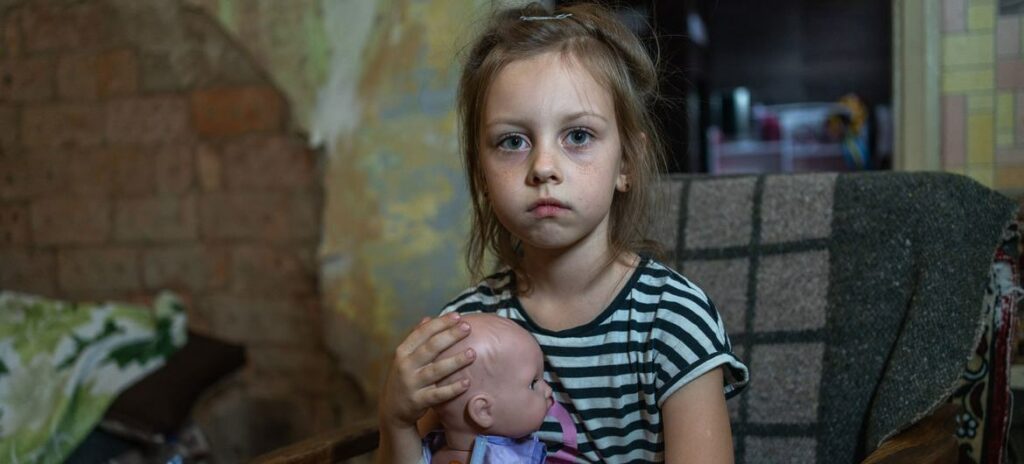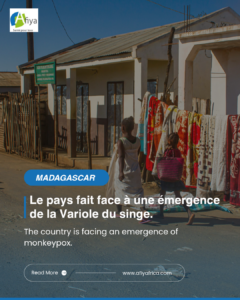As conflicts multiply, population displacements intensify, and the climate crisis strikes with growing force, the UN Secretary-General on Friday highlighted the heavy toll that crises take on people’s well-being and the urgent need to strengthen support to ease their suffering and help them overcome distress.
“We are living through difficult, testing times,” António Guterres declared on the occasion of World Mental Health Day. “Mental health support is not optional — it is essential.”
According to the World Health Organization (WHO), one in five people living in crisis zones suffers from a mental disorder, while most have no access to the care they need — particularly in low- and middle-income countries.
Humanitarian and healthcare workers on the front lines are no exception.
This year’s theme, “Mental health is a universal human right: Strengthening mental health systems before, during and after crises,” calls for integrating mental health into all emergency responses, training staff, and ensuring sustainable funding.
“We must end the chronic underfunding of mental health,” Guterres insisted, urging the international community to support those who, amid chaos, are simply trying to reclaim their humanity.
A major concern: suicide and alcohol abuse
Suicide remains a major concern, with a regional standardized rate of 11.5 per 100,000 inhabitants. In some countries, alcohol consumption exceeds 10 liters per person, further increasing risks.
Only nine countries have a dedicated budget line for mental health, and many lack both a national policy and qualified personnel.
The WHO’s new mental health dashboard allows tracking of regional indicators, identifying gaps, and guiding public policy to improve care. By centralizing data on a single platform, WHO aims to foster more coherent action and help build a healthier, more resilient future for Africa’s one billion inhabitants.
One in ten healthcare workers in Europe in mental distress
According to a new survey by WHO/Europe, one in ten healthcare workers — whether a doctor or a nurse — in Europe reports having suicidal thoughts.
Conducted among nearly 100,000 professionals in 29 countries, this joint WHO/Europe and European Commission study paints an alarming picture: working conditions are taking a severe toll on healthcare workers’ mental health.
“Ultimately, the mental health crisis among our healthcare workers is a public health security crisis that threatens the integrity of our health systems,” warned Dr. Hans Henri P. Kluge, WHO Regional Director for Europe.
A quarter of physicians work more than 50 hours per week, and one-third are employed on temporary contracts — a precarious situation strongly linked to increased anxiety. One in ten caregivers reported having thought that they “would be better off dead” or had considered self-harm in the previous two weeks.
Workplace violence, exhausting hours, and lack of support exacerbate these problems.
“We chose a path of humanity, but that doesn’t mean we stop being human ourselves,” said Mélanie Debarreix, a radiology resident in France.
Despite everything, most healthcare workers continue to find meaning in their mission: three-quarters of doctors and two out of three nurses report strong motivation.
However, WHO warns that up to one-third of healthcare workers are considering leaving the profession by 2030, at a time when Europe could already face a shortage of 940,000 health professionals by then.
The UN agency calls for urgent action: zero tolerance for workplace violence, a review of working hours, and guaranteed access to quality psychological support — all deemed essential to protect the mental health of those on the front lines and, by extension, the health of all.
Mental health disorders in Africa
In Africa, nearly 150 million people live with mental health disorders, according to a new dashboard released Friday by the WHO Regional Office for Africa.
The tool reveals the scale of the challenge on a continent where services remain limited, fragmented, and inaccessible to many communities.
Disorders such as depression, anxiety, and addiction affect all segments of society. Yet mental health services remain severely underfunded, fragmented, and out of reach — particularly in rural areas, the WHO notes.
Suicide is also a major concern, with a regional rate of 11.5 per 100,000 inhabitants. In some countries, alcohol consumption exceeds 10 liters per person, further heightening risks.
Only nine countries have a specific budget line for mental health, and many have neither national policies nor qualified staff.
The WHO dashboard enables regional monitoring, helps identify gaps, and supports evidence-based public policy for improved care. By consolidating data into a single platform, the WHO aims to foster more coherent action and build a healthier, more resilient future for Africa’s one billion people.







OTHER ARTICLES
Editorial: AFCON – When Football Becomes a Major Public Health Lever in Africa
Cheaper drinks will see a rise in noncommunicable diseases and injuries
Madagascar is facing an emergence of Monkeypox